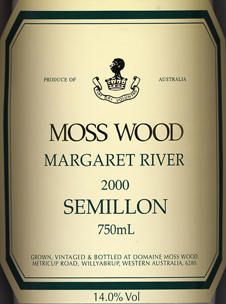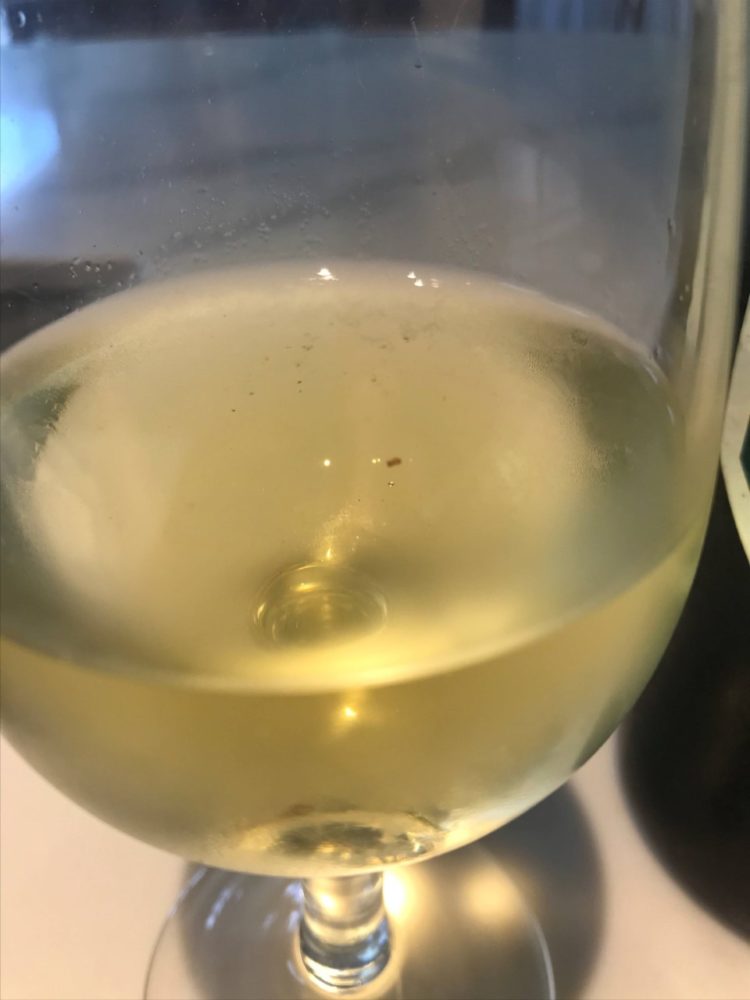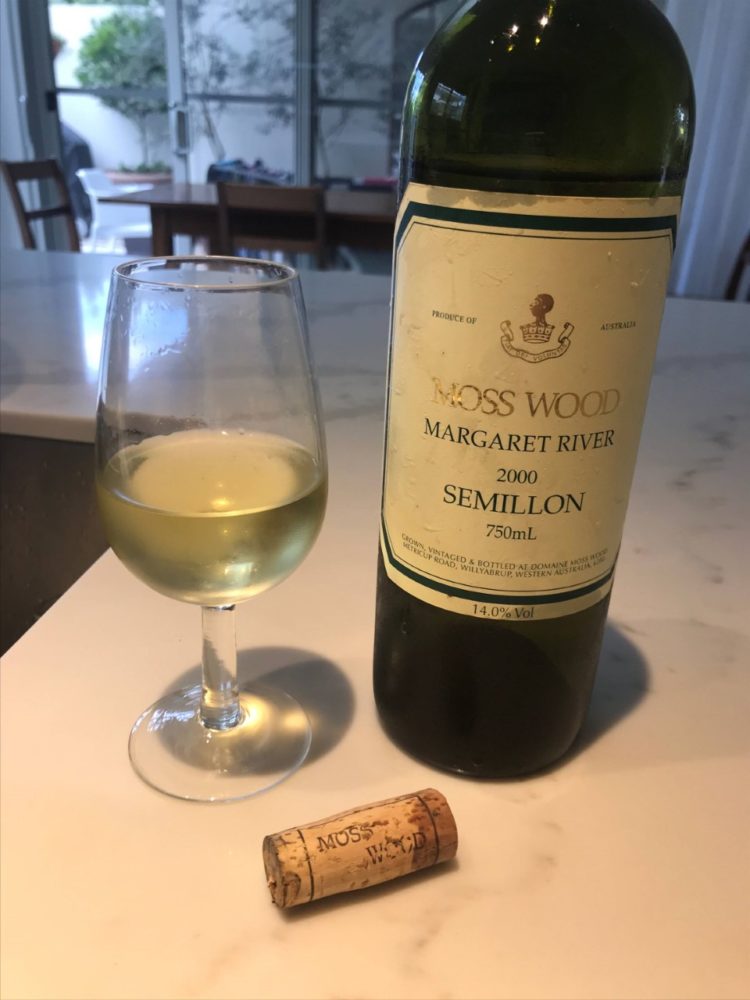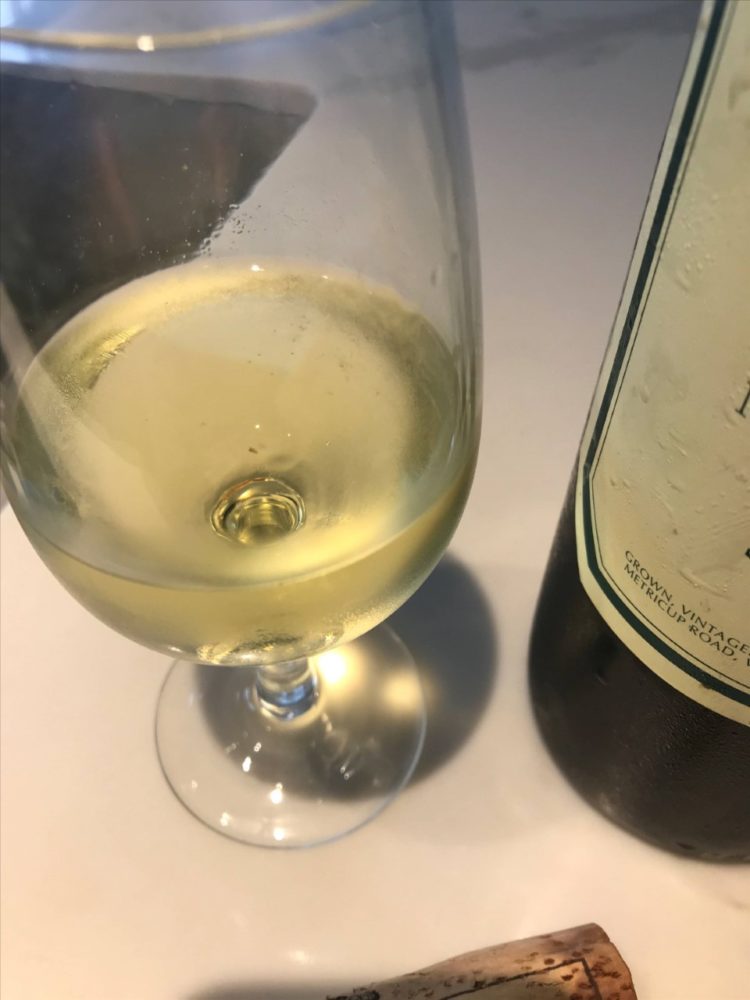Moss Wood 2000 Semillon

Wine Facts
| Harvested: | 05/3/2000 |
| Bottled: | 23/7/2000 |
| Released: | 08/11/2000 |
| Baume: | 13.50 |
| Alcohol: | 14.00% |
| Vintage Rating: | 9/10 |
SOLD OUT
The 2000 Moss Wood Semillon exhibits fig, melon and grapefruit citrus aromas, delicate, lemon sherbet characters and minerality, made more complex by some restrained grassiness and a crisp, dry and quite firm finish. It is fresh, clean and lively on the palate, has impressive weight, a generous, fleshy texture and good depth of flavour. While recognisably Moss Wood Semillon, it is more savoury and less overtly fruity than usual: perfect with food.
We were pleased with the quality and condition of the fruit and believe that this Moss Wood Semillon has been quite similar to the 1980 in the cellar. It showed suppleness, generosity, drinkability and appealing fruit. There was a creamy lusciousness that we believe is the feel of the vintage.
Moss Wood 2024 Semillon – Ray Jordan, Ray Jordan Wine
This is a slightly fuller style than previously. Perhaps a product of the warmer vintage or an indication of a somewhat new direction for the variety. Regardless, it retains the essential linear mouthfeel and intensity of lemon zest and citrus. A crisp zingy acid sustains the long finish—an immediately appealing…
WA Wine Review 2024
Ray Jordan “Moss Wood is a family-owned wine company and a pioneer of the Margaret River region. Planted in 1969, Moss Wood is an important founding estate of Margaret River. Clare and Keith Mugford, as viticulturalists, winemakers and proprietors, have been tending the vineyard and making wine at Moss Wood…
Moss Wood 2023 Semillon – Stuart Knox, The Real Review
Bright lime and lemon colours shine through the glass. Grapefruit, melon and chopped green herb aromatics. The palate has a tension and drive that instantly draws you in. Citrus fruit and hints of leafy greens add complexity whilst that driving acidity ensures it carries very long and crisp to the…
Moss Wood 2023 Semillon – Fergal Gleeson, Great Wine Blog
The Moss Wood 2023 Semillon leads with lemon and Granny Smith flavours. Dig a little deeper for fig and nectarine. It’s a riper and fuller bodied expression than Hunter releases. Still has that underlying chalk, dryness and acid line to keep everything tidy. Always highly pointed by wine critics but…
Moss Wood 2023 Semillon – Ray Jordan, Ray Jordan Wine
Remains one of my favourite Moss Wood wines, and certainly one of my favourite semillons. And this one from the great ’23 vintage is right up there with anything. It seems a more pungent and intense semillon than previous years and probably a result of the vintage which produced such…
Moss Wood 2023 Semillon – Angus Hughson, Wine Pilot.com
Immediately engaging thanks to excellent upfront volume of hay and honeydew melon with touches of lanolin which offer an impressive start. It then delivers a nicely textured and weighty expression with finer acidity than usual, but impresses with sheer power and youthful energy. An excellent vintage for this Margaret River…
Moss Wood 2023 Semillon – Ned Goodwin, jamessuckling.com
This is exceptional semillon, made with a stylistic nod to white Grave as much as fealty to Margaret River’s oath of immaculate ripeness, melded to a saline pop of freshness. Full-weighted, yet light on its feet. Some unresolved CO2 is as effective as the drag of acidity in promoting freshness….
Moss Wood 2023 Semillon – Gary Walsh, The Wine Front
Gee, they’ve turned out an excellent Semillon in 2023. No oak employed here. Ripe green apple, quince, lime leaf, citrus blossom, a little spice and jalapeño. It’s flavoursome, but balanced, with a fine grip, green melon and citrus, arrowroot biscuits, and a bright and long finish offering lime zest and…
Moss Wood 2023 Semillon – Andrew Caillard, Wine Pilot.com – The Vintage Journal
Pale colour. Lifted grassy, lemon curd hint marzipan aromas with hints of aniseed. Attractive lemon curd, tropical fruit marzipan flavours, fine chalky textures, impressive mid-palate volume and well balanced linear fresh acidity. Generous and richly flavoured wine with lovely fruit definition and impact. Delicious to drink now but should keep…
Moss Wood 2023 Semillon – Ken Gargett, Wine Pilot.com
Always one of the most exciting West Aussie Semillons and this release is no different. The vintage notes from the team at Moss Wood rave about 2023. Cynics amongst might suggest that these guys really wouldn’t know a poor vintage if they ever had the misfortune to encounter one. It…
Vintage Notes
The 2000 season saw the first harvest of fruit from the new semillon block, which produced a total of two tonnes. It is always exciting when a new vineyard finally comes into production. When this is coupled with the joy surrounding the last vintage of the century, it is scarcely surprising that such a propitious occasion would bring forth a terrific vintage!
There had been concerns with the high temperatures of December, though the possibility of a hot harvest did not eventuate. January's rain was early enough not to split the semillon grapes which is a common worry in Margaret River: two weeks later and it might have been a problem. As it was, this rain freshened the vines and the sugar levels rose to ripeness with ease. The vines were in balance as the fruit ripened and for once, the numbers were spot on when picking commenced at 13.5 degrees baume. Yield was down slightly on normal - 10.3 tonnes/hectare (4.1 tons/acre) and so the wine has a touch more concentration of flavour than usual. In the past, the semillon has been picked at different levels of ripeness. The policy now is to wait until it is fully ripe and then pick. So this year, it was taken off in four batches between the 6th and 9th of March.
Production Notes
We followed our normal winemaking followed normal practices except for changes due to the better equipment which has come into use with the new winery building. Juice preparation occurred as per normal. The grapes were destemmed but not crushed, and were placed into the must chiller to cool to eight degrees. The gentler handling enabled the wine to retain better fruit characters and the lower temperature in the must chiller reduced oxidation and enhanced the depth of primary fruit. The fact that the grapes were not crushed means that there was less skin damage and so the tannin structure is much less harsh. It was settled for 48 hours and then the clear juice was pumped into the fermentation tank along with 2% of solids. Fermentation began spontaneously, triggered by wild yeast, though once the juice had dropped from 13.4 to 11 degrees baume, a pure yeast culture was introduced and the process continued until it was completed at 0 degrees. The temperature was maintained at 18 degrees Celsius and the lees were hand plunged every day. Once fermentation had been completed, this stirring was reduced to once every seven days for the eight weeks of lees contact that the wine was allowed. After that time, it was stabilised, filtered and bottled.
We believe that the wild fermentation yeast may have changed the fruit profile on the nose of the 2000 Moss Wood Semillon. Although the wine has complexity, great mouthfeel and good length, we feel that this Semillon is not as overtly fruity as we have come to expect. While particularly happy with this approach and its impact on the 1999 Moss Wood Chardonnay we had some concerns initially about the 2000 Semillon. However, the process of sequential inoculation (allowing spontaneous fermentation by wild yeast and the introduction of pure yeast during the fermentation process) has made a wine which is complex and interesting in its youth and likely to be even more attractive and fascinating at about ten years of age. We would encourage the keeping of one or two bottles for long term cellaring.
Cellaring Notes
This wine is complex and interesting in its youth and likely to be even more attractive and fascinating at about ten years of age.
February 5th, 2021
We recently received an email from a very long-term customer and Moss Wood Member, Stephen Tobin. He opened a bottle of Moss Wood 2000 Semillon and wanted to share with us that it "drank very well with nice long lemony finish" and was "fantastic". We greatly appreciate receiving feedback from our customers. Here is what Keith replied.
"Thanks very much for taking the trouble to write and share this with us. Much appreciated! It’s always good to hear when a wine has lived up to expectations.
There were some interesting aspects to the 2000 vintage. Crops were quite big because flowering conditions in 1999 were terrific and we had rain in January which ensured all those berries were a good size. Growing conditions were good and despite the solid crops, everything, including the Semillon, got comfortably through to full ripeness.
All the varieties showed a delicious approachability as a result.
It seemed at the time that the wines were so supple and generous that they might have aged too quickly but your email confirms this is not the case. The fact your bottle showed a good lemony finish is a great sign.
The other distinguishing feature of 2000 was that all the wines were made using wild yeast fermentation, which we hoped would add overall complexity to the nose and more glycerol to the palate. Although we were quite happy with the results, we decided not to continue the technique after that vintage because the variable quality of fermentations posed too much of a risk for us. However, we were always happy with the Semillon and it’s nice to see it stood the test of time.
Kind regards, Keith"



Photos courtesy of Stephen Tobin
